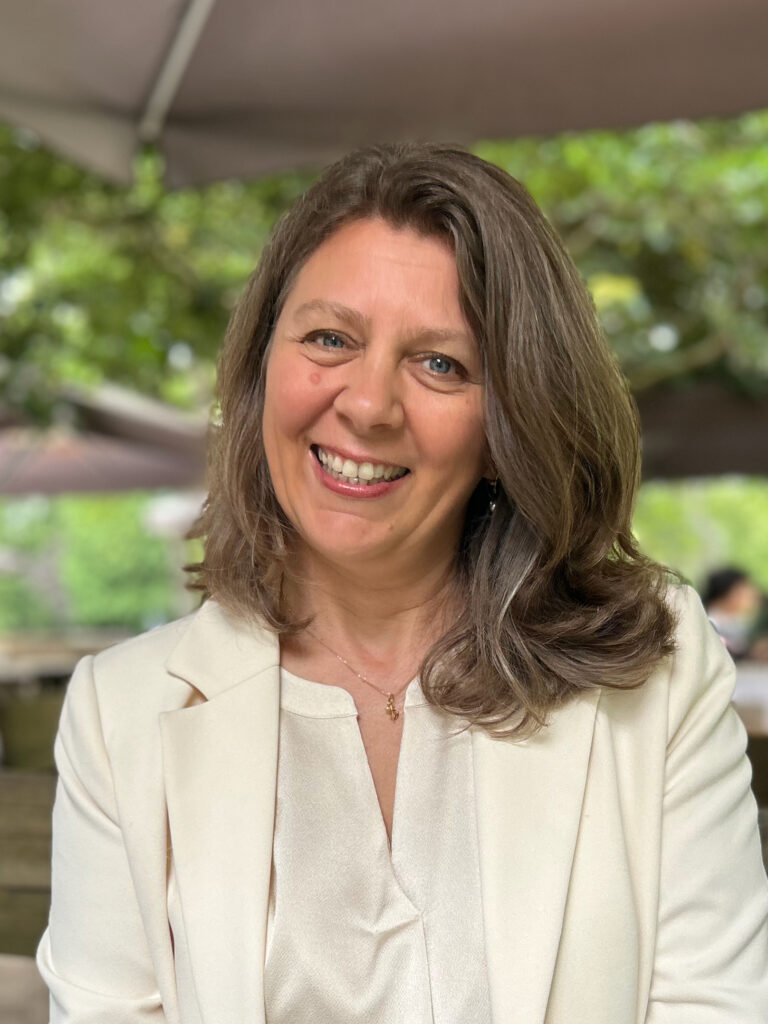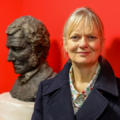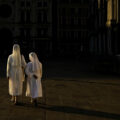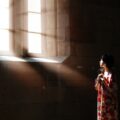Completing our reality: Bénédicte Lemmelijn on women shaping tomorrow’s religion
Completing our reality: Bénédicte Lemmelijn on women shaping tomorrow’s religion
In an interview with the European Academy on Religion and Society (EARS), Dean Bénédicte Lemmelijn, scholar of Old Testament studies at KU Leuven, discusses the future of religion in the light of women’s increasing participation. Moving away from traditional perspectives that largely excluded women’s roles, she highlights how their involvement reshapes religious identity and practice. She specifically reflects on women’s dual role in enriching and diversifying religious discourse. Lemmelijn concludes with a call to re-evaluate religious structures and norms, pointing to women’s significant and complex role in shaping the future of religion.
The role of women in theology and its impact on the future of religion is a subject of significance and interest. The European Academy on Religion and Society (EARS) explores this topic in an interview with Dean Bénédicte Lemmelijn, a distinguished Professor in Old Testament at KU Leuven. Lemmelijn, recognised for her expertise in textual and redaction criticism of the Old Testament, discusses the significance of women’s participation in religious life. Offering insights as a scholar, author, and woman in theology, Lemmelijn argues that this participation not only enriches religion, but also fulfils and completes our reality.
Women, and the search for meaning
Dean Bénédicte Lemmelijn anchors her theological work in the universal ‘search for meaning’, connecting it with broader human existence and spirituality. “I chose to study theology because I wanted to do something with an intrinsic value, for God and his people,” she explains, emphasising the deep connection between her scholarly pursuits and her desire to serve.
“I chose to study theology because I wanted to do something with an intrinsic value, for God and his people.”
In her research, Lemmelijn emphasises the relevance of religious texts as dynamic reflections of human experience: “Even the technical research of textual criticism is not isolated. Through the critical study of the Bible and its textual forms and manuscripts, e.g. in the findings of the Dead Sea Scrolls, we learned that at that time, the Bible existed in a plural form and was a combination of texts from which people lived and not the untouchable text it has become centuries later.” She argues that academic study of sacred writings must acknowledge their role in the lived reality of past and present communities, understanding these texts as ever-evolving rather than immutable.
Lemmelijn believes women’s increased involvement would inherently enrich the search for meaning. “If religion can be the way of living and looking at the integrity of both a surrounding and transcending reality … If we bring that perspective as women, then I think it can only be enriching.” Lemmelijn, however, acknowledges the significant cultural and institutional barriers women have faced in academia and religion. She highlights this with the uniqueness of her own career within a traditionally male-dominated field: “I was one of the few female doctoral students in my time …. For years, I’ve been the only full-time female professor here. I have been the first female vice dean and dean, and [also] the first Belgian woman in the Pontifical Biblical Commission.”
Nevertheless, Lemmelijn’s journey as a scholar, a woman, and a seeker of meaning strengthens her conviction that the inclusion of women is essential for a comprehensive and authentic engagement with the divine narrative. She asserts that women’s increased involvement would naturally enhance the search for meaning. “The more involved women would be, the more these kinds of elements will also enter the whole of reality.” Lemmelijn explains this point by her experience as a female academic in theology, “It’s not female or masculine science – however, in the margin of the technical science, how I look at reality is different from that of men.” Reflecting on her unique journey, she says, “I’ve experienced firsthand the slow but impactful inclusion of women in religious academia.” She emphasises that involving women more in religion is crucial for enriching the field with diverse perspectives and experiences. “The inclusion of women’s viewpoints fundamentally changes the way we understand and engage with religion,” she explains.
“The inclusion of women’s viewpoints fundamentally changes the way we understand and engage with religion.”
Women, and the future of religion
In her vision for religion’s future, Lemmelijn stresses the need for evolution and inclusivity within religious communities. She believes that the active inclusion of women’s perspectives is not only beneficial but essential for a comprehensive and authentic religious experience. “Religion needs to adapt and grow, integrating the myriad experiences and insights of all its members, especially women,” she asserts.
“Religion needs to adapt and grow, integrating the myriad experiences and insights of all its members, especially women.”
Lemmelijn observes a paradox in contemporary religious engagement. People are moving away from conventional religious structures towards more personal spiritual explorations: “I see that we live in a time of a paradox. On the one hand, you have fewer people in the church, fewer priest candidates, and fewer theology students. From the other side, I observe to a growing extent that so many people are in search of meaning in some way, through yoga, mindfulness, or meditation.” She believes that this paradox actually creates more space for women in religion: “I have been doing yoga for 30 years and it’s remarkable that there are far more women than men. And yoga is some kind of searching for meaning, so it touches somehow upon a religious dimension.”
Calling this a “pluriform searching for meaning,” she identifies three significant trends in this pursuit: the attention to the here and now, the longing for harmony and connectedness with both the surrounding and transcending reality, and the pursuit of happiness, fulfilment, and meaning. These elements, she notes, are increasingly evident in popular culture and align with the mystical and biblical traditions of the Jewish-Christian heritage.
Regarding the role of women in shaping these trends, Lemmelijn returns to her own experiences as a female academic and theologian. She believes that involving women more in religion will enrich it by bringing in perspectives that may have been previously overlooked. “The more you include women, the more you get their proper attention and perspective, and the more it will be reflected in reality,” she asserts. Lemmelijn’s vision for the future of religion is one of evolution and inclusivity, where the contribution of women is not just acknowledged but actively sought. She advocates for a religion that adapts and grows with time, embracing the diverse perspectives and experiences of all its members. “The future of religion,” she emphasises, “is in its ability to evolve and integrate the depth and variety of perspectives that women offer, truly reflecting the diversity and complexity of our shared human journey.”
“The more you include women, the more you get their proper attention and perspective, and the more it will be reflected in reality.”
Including voices in religion
Bénédicte Lemmelijn concludes with key considerations for policymakers and community leaders regarding women in religion: “Involve women in religion … it will bring other aspects that may have been neglected.” She underscores the importance of actively involving women in religious discourse and decision-making processes. Lemmelijn directs her calls for an inclusive approach within her own religious context of Roman Catholicism. She challenges the Belgian church to adapt and become more inclusive, suggesting that women’s involvement would bring a more concrete and fitting religious experience that reflects everyday life. She believes that “if women would be given a chance, then I’m convinced it would be an enrichment,” but she is also aware that such changes in the church’s hierarchy “are not likely to happen quickly due to its universal nature.” Lemmelijn, therefore, advocates for a more inclusive approach, where women’s experiences and insights are valued and integrated into religious practices and teachings. According to her, diverse voices are not just heard but also instrumental in shaping the discourse.
Moreover, these voices are not just limited to the confines of gender alone. Lemmelijn calls for recognition of the full spectrum of human diversity in religious life, emphasising the unique contributions of all individuals: “I should even be more nuanced because … of course many people [are] on a continuum. … All people also have their own sensitivities which we have to take into account.” Lemmelijn’s acknowledgement of diversity beyond gender is a call for a broader understanding and acceptance. Lemmelijn reinforces this idea by stating, “Each diversity includes the necessity of people and gives them both the right to be as they are and the right to feel safe as they are.” This inclusive viewpoint encourages a religious community that appreciates and ensures the safety and validation of every individual’s identity.
Who is Bénédicte Lemmelijn?
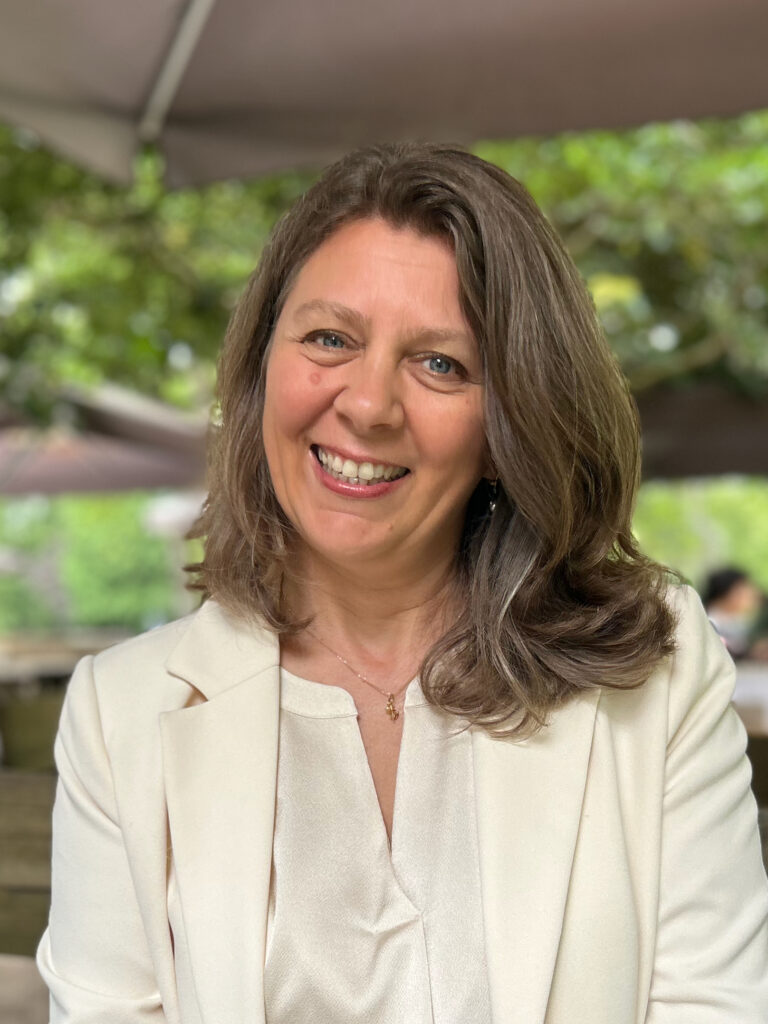
Bénédicte Lemmelijn is a Professor of Old Testament studies at KU Leuven, specialising in textual criticism. She has been the Dean of the Faculty of Theology and Religious Studies at KU Leuven since 2022. She is the Director of the Louvain Centre for Septuagint Studies and Textual Criticism and has been involved in various research projects aimed at advancing the scholarly understanding of the Septuagint and the Pentateuch.
Lemmelijn has published numerous scholarly works, primarily in the area of textual and redaction criticism. The text-critical part of her PhD thesis on the Plague Narrative in Exodus was published in 2009 as A Plague of Texts? A Text-Critical Study of the So-Called ‘Plagues Narrative’ in Exodus 7.14–11.10. Another monograph on the redaction-critical aspects thereof will soon be published. She has also written in terms of science communication, through books and columns. Notable is the book on the relation between her personal faith and her critical biblical studies in Mijn geloof als bijbelwetenschapper? Een broos en eerlijk antwoord (2016, 5th ed. 2020), translated in different languages; and Mindful geluk. Vanuit eeuwenoude Bijbelse Wijsheid with editions from 2017 to 2023, examining the relevance of biblical wisdom in the actual context of a new search for meaning. Other notable works include Een ogenblik. Gedachten voor de vier seizoenen (2022), collected columns, and Verdiep je in… Bijbelse wijsheid (2022, co-authored with Panc Beentjes). In addition to her responsibilities at KU Leuven, she has been a research fellow at the University of the Free State in South Africa since 2008. Lemmelijn’s contributions extend beyond academia into ecclesiastical scholarship; she will serve on the Pontifical Biblical Commission for the term 2021-2026.
This interview was conducted by Muhammad Faisal Khalil and Simone Kroes.
Explore the interview series on the future of religion:
- Religious orthodoxy and the future of religion: A conversation with Philippe Portier
- Economy, society, and religion: Revisiting Max Weber with Mathew Guest
- Through the apocalypse: Graham Ward on religion’s future in the wake of migration
- Tradition in transition: Linda Woodhead on women’s roles in the paradoxical religion of tomorrow
- Religion at a crossroads: A conversation with Matthias Smalbrugge on the future of religion
